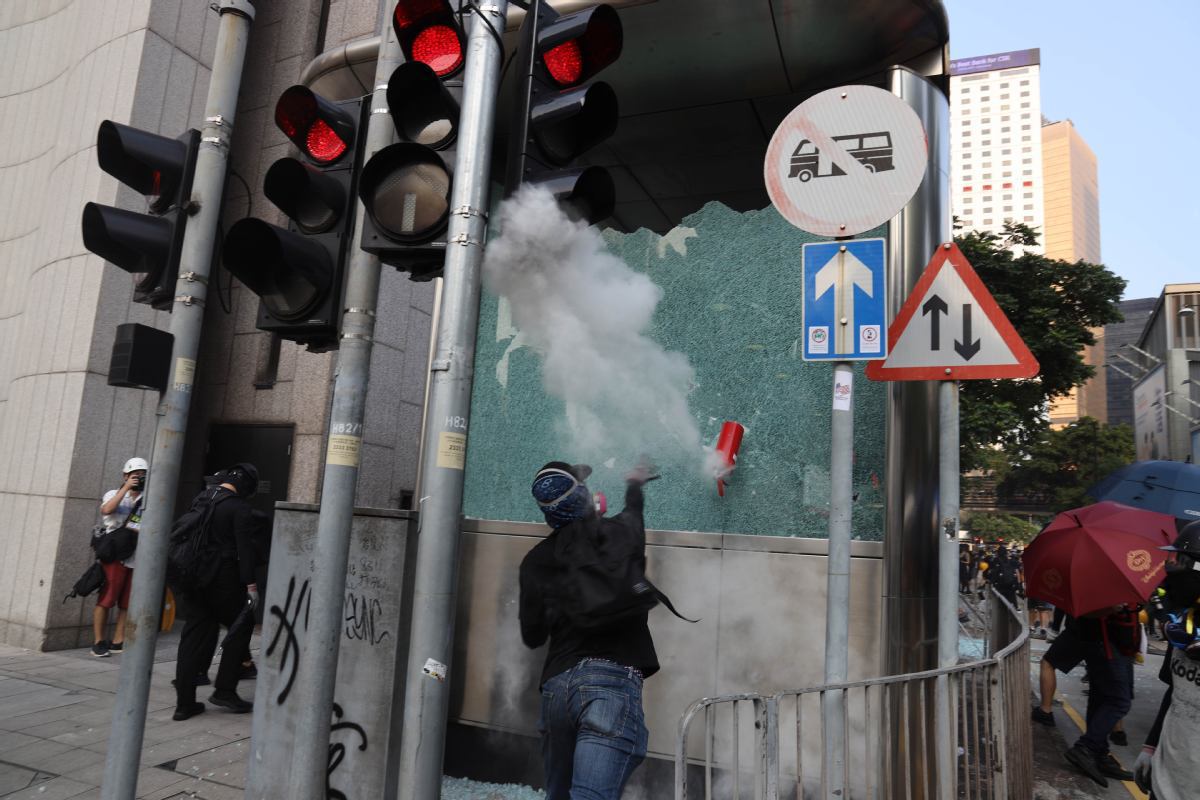HK public call for anti-mask law to end violence


Pro-establishment lawmakers on Monday urged the introduction an anti-mask law in a bid to end violence, a day after the city was crippled by anti-government demonstrations for the 16th straight weekend.
The past weekend witnessed masked radicals hurling bricks and gasoline bombs at police officers, set fire to barricades, and smash metro station facilities.
The anti-mask law would ban protesters from wearing masks in public demonstrations to conceal their identities, which would greatly reduce their irrational behavior, said legislator Ann Chiang Lai-wan at a news conference. Chiang represents the stance of the Democratic Alliance for the Betterment and Progress of Hong Kong, the largest party in the city's legislature.
The radicals' hidden identities have made it difficult for the police and the Department of Justice to prosecute those arrested, said Chiang. People who were beaten up by a group of masked protesters could not identify the abusers, she added.
Echoing Chiang, lawmaker and lawyer Junius Ho Kwan-yiu suggested that Hong Kong Chief Executive Carrie Lam Cheng Yuet-ngor enact emergency legislation to introduce the anti-mask law. The Emergency Regulations Ordinance grants the city's leader the power to make regulations during "occasions of emergency or public danger."
The violence of the radical protesters has escalated to a point that they indiscriminately beat citizens because they can easily escape the legal consequences, Ho said at the press conference. Therefore, it is necessary to make clear provisions in legislation so that citizens can abide by the law, he said.
Moreover, laws of press registrations and against insulting police officers should also be enacted to facilitate police operations.
Their appeals followed a rally outside the government's headquarters on Monday morning for the same cause. A civic group of about 40 residents called for immediate anti-mask legislation.
"Masks have become the protection under which radical protesters, in defiance of the rule of law, vandalized public facilities or even attacked residents who hold different political views from them," said the group spokeswoman, surnamed Chan.
A resident surnamed Yeung at the rally said masks make rioters reckless and also add to the difficulty of the police's law enforcement.
In August, thousands of residents, including legal experts, signed a petition that urged the government to prohibit wearing masks in public assemblies.
An anti-mask law in the United States can be traced to 1845, as New York state made it illegal for three or more people to wear masks in public after tenant farmers dressing up as Native Americans killed their landlords and attacked law enforcement officials.
In 2013, Canada approved a bill to forbid people from covering their faces during an unlawful assembly. This offense carries a maximum penalty of 10 years' imprisonment.
In the past few decades, social scientists have contributed empirical data showing that wearing masks confers a sense of anonymity and makes people more likely to violate rules and norms.
In 1979, Purdue University psychologists looked into how putting on a mask affected the chance of children breaking rules by tracking the candy-taking behavior of kids on Halloween. They found that about two-thirds of the children in the masked costumes broke the two-candy limit, compared with only one-third of those whose faces were not covered.
- Intl research team develops damage-free etching technique for optoelectronic semiconductors
- Task force to investigate prenatal exam failure in Hubei
- Report on tailings dam collapse in Yunnan suggests accountability for 26 individuals
- Beijing-Zhangjiakou trains expand ski gear service
- Documentary 'Through Ice and Snow' is to be broadcast internationally
- China launches new remote-sensing satellite




































